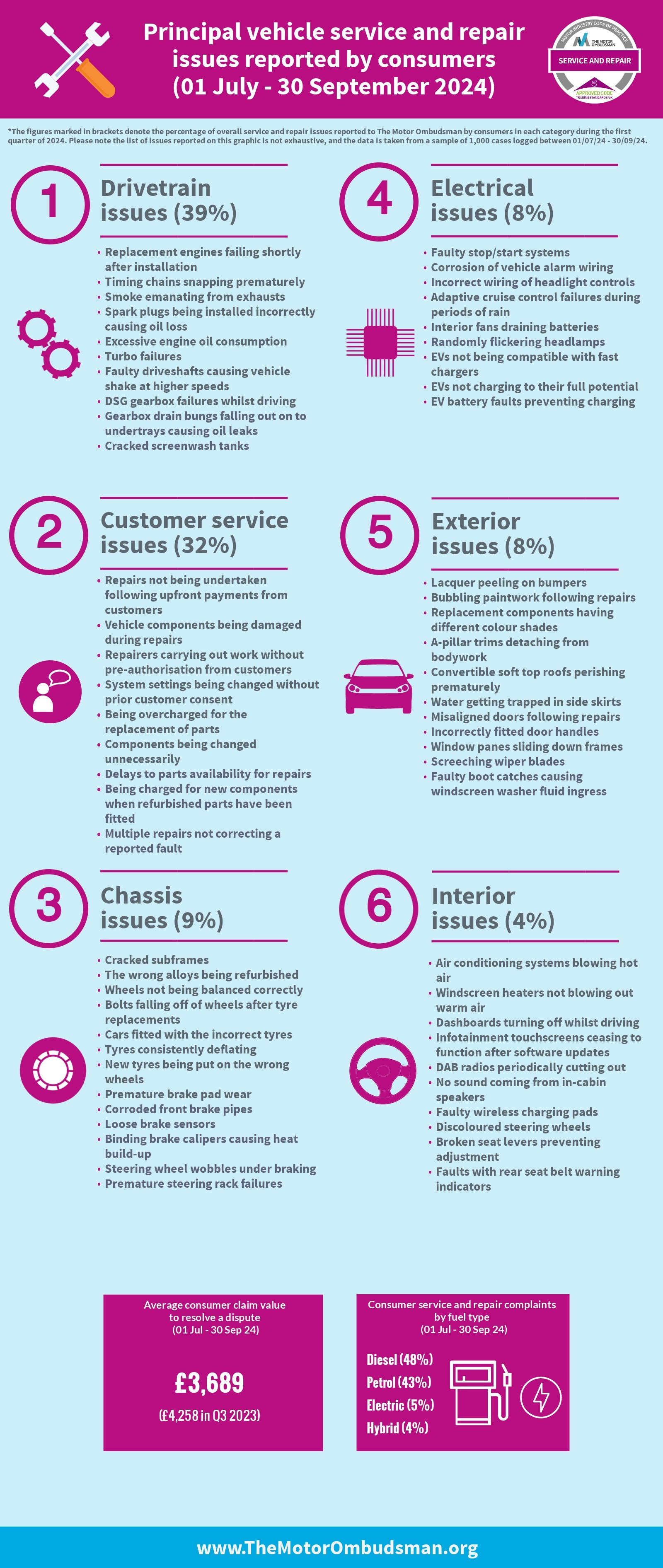The Motor Ombudsman’s latest quarterly report reveals a record increase in service and repair complaints from consumers, reflecting growing awareness of consumer rights and the economic pressures that are prompting many motorists to seek dispute resolution.
Between July and September, The Motor Ombudsman logged 1,586 new cases, an 18% increase compared to the same period in 2023, though just below the all-time high reached in the second quarter of this year.
The report identifies several primary areas driving complaints. The drivetrain category, covering critical vehicle components like the engine, transmission, and fuel systems, remains the leading source, accounting for nearly 40% of all complaints.
Common issues include malfunctioning timing chains, turbocharger failures, and excessive oil consumption.
Customer service during servicing and repairs is the second most significant area of concern, representing nearly one-third of complaints, up significantly from last year.
Consumers voiced frustrations with unauthorized repairs, vehicle damage during servicing and recurring issues that remain unresolved despite multiple repair attempts.
Complaints related to the vehicle chassis, which includes suspension, brakes, wheels, and steering, saw a slight decrease compared to the previous year but remained a notable area of concern with reports of improper tyre fitting, premature brake wear, and subframe issues.
Electrical system issues are the fourth-largest complaint category, with reports involving alarm wiring corrosion, battery drain from interior fans, and faulty stop/start systems.
While fewer complaints have emerged from EV owners due to the smaller number of electric vehicles on the road, the report notes a minor yet increasing trend of battery and charging issues.
Other complaints related to exterior and interior issues, with consumers reporting poor paint finishes, misaligned doors, and infotainment system malfunctions.
Consumers most frequently requested free repairs, compensation, or full refunds to resolve their complaints.
For those seeking financial compensation, the average amount requested was £3,689, slightly lower than the previous year’s figure.
Diesel vehicles led in complaint volume, followed by petrol models, while electric and hybrid models generated comparatively fewer issues.
Chief ombudsman and managing director Bill Fennell attributed the rise in complaints to increasing vehicle maintenance costs and overall financial pressures which are driving consumers to pursue complaints and are submitting far more detailed and comprehensive evidence to bolster their case.
Fennell added: “With the car parc being predominantly petrol and diesel models, the drivetrain area of a vehicle continues to generate the highest volume of service and repair complaints, but this will no doubt see a shift once EV sales become more prominent in the run-up to 2030.”



